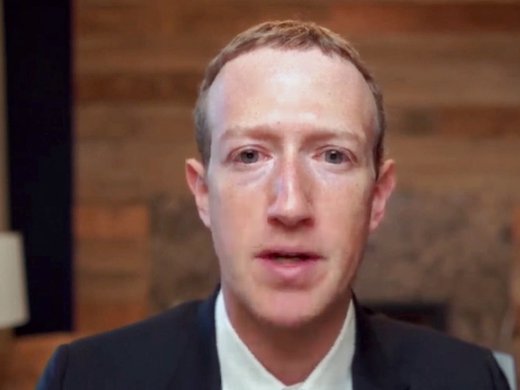When Telegram founder and CEO Pavel Durov was arrested by French authorities in France on August 24, 2024, as part of a probe into organized crime, the social media network and its CEO were suddenly thrust into the spotlight. Unlike Elon Musk, Mark Zuckerberg and Sam Altman, Durov, who is of Russian origin, is not a public figure.
More remarkable was that the head of a major tech company had been detained and charged. Although Sam Bankman-Fried, the founder of the collapsed cryptocurrency exchange FTX, had been arrested by Bahamian authorities in December 2022, tried on fraud charges and sentenced to 25 years in prison, tech CEOs have tended to be seen as untouchable, in part thanks to their great power, influence and wealth.
Social media companies such as X, Meta and YouTube have been criticized and sometimes fined for publishing disinformation or incendiary or hateful content. But the people who manage the platforms have rarely been held accountable. Durov’s arrest thus ignited long-existing debates over freedom of speech and online freedoms.
These are important conversations, which policy makers, technocrats and governments have been having for years. Amid these discussions, it’s important to understand what sets Telegram apart from X, Instagram and even TikTok, and why we’re unlikely to see another social media CEO arrested any time soon. Telegram’s nature and “philosophy” also provide insights into the role that technologies can play in geopolitical tensions and international affairs.
Founded by Durov in Russia in 2013, Telegram is now based in the United Arab Emirates (UAE) and run out of Dubai. Telegram allows one-on-one chats, public channels and group chats. Group chats can include as many as 200,000 people and are used for all kinds of communication, from political organizing to government communication. The platform is advertised as and (mistakenly) believed to be secure and encrypted end-to-end. Telegram is also known for its lack of moderation.
Use of the platform in North America is relatively low compared with giants such as TikTok, X, YouTube and Facebook. In the United States, Telegram was downloaded 21.12 million times in the first nine months of 2023, and the United States accounts for two percent of its total users worldwide. Comparatively, as of the fourth quarter of 2023, Facebook had a combined 272 million monthly active users in the United States and Canada, according to Statista. In 2024, TikTok has 170 million users in the United States and 14.89 million in Canada.
And yet, Telegram is very popular globally, with 950 million active users worldwide in 2024. It is most popular in Russia and in other post-Soviet countries, as well as in Indonesia, Brazil, Iran and India, with the latter accounting for the largest number of users. Most users employ the platform for benign communication, as one would use WhatsApp and Messenger, and as a source of news and information.
Durov, who launched the company in 2013 with his brother Nikolai, seeking to create an encrypted app, has said he doesn’t believe governments should restrict what people say or do.
Indeed, in 2011, when he was the head of Russia’s very popular social networking site VKontakte, his first social media company, Durov declined to hand over data or shut down the channels of opposition groups that were participating in anti-Kremlin protests. Although he argued the decision was not political but economic, it caused long-term friction with the Kremlin. He eventually sold his shares of VKontakte and left Russia in 2014. In 2018, Moscow banned Telegram after Durov failed to comply with government requests to hand over information on certain users. Russia lifted the ban after two years of being unable to block its operation.
According to tech journalist Nilay Patel, discussing “the problem with Telegram” in an episode of The Vergecast, “the way [the platform has] structured the data on Telegram means that if a government wants to issue a warrant or a subpoena, they actually have to issue, like, in 20 countries across the world in order to get the data.”
Durov’s arrest also brought into focus the platform’s and CEO’s ambiguous relationship with the Kremlin, and, in the context of great-power competition and geopolitical tensions, how social media platforms exemplify the dynamics at play.
Telegram the Enabler?
According to a Politico investigation published in September, Telegram first came under scrutiny after Durov’s refusal to hand over the name of a suspected sexual predator. But French authorities also indicted him on multiple counts related to illicit activity on the app, including drug trafficking, money laundering and online hate speech. The French prosecutor’s office pointed to “Telegram’s almost total failure to respond to judicial requests.” Durov was also charged with withholding crucial information from investigators. In response, Durov published a 600-word statement on his Telegram account, expressing surprise that he’d been arrested, stating that “using laws from the pre-smartphone era to charge a CEO with crimes committed by third parties on the platform he manages is a misguided approach.”
An October 2024 report by the United Nations Office on Drugs and Crime titled Transnational Organized Crime and the Convergence of Cyber-Enabled Fraud, Underground Banking and Technological Innovation in Southeast Asia: A Shifting Threat Landscape shows how social media has become part of the communication fabric of criminal networks in the region.
That report states that “several platforms controlled by powerful and influential regional criminal networks have come to dominate the illicit economy, particularly on Telegram, representing key venues where criminals and service providers congregate, connect, and conduct business online, fueling the growth of the regional illicit economy.” The report further argues that this tech infrastructure, particularly Telegram’s marketplaces, groups and channels, have “created conditions for self-sustained growth of the criminal ecosystem, enabling the targeting of people far beyond the region.” The platform has not responded to the allegations made in the report.
Joining Telegram groups involved in illicit activities is not difficult. Indeed, journalist Joe Tiddy told the BBC’s The Global Story podcast that he was very quickly added to different channels involved in drug and gun trafficking once he started using Telegram to investigate the case. Within a few weeks, he said, he was a member of
82 different criminal groups openly sharing messages.
Russia’s Relationship with Durov
Durov’s arrest also brought into focus the platform’s and CEO’s ambiguous relationship with the Kremlin, and, in the context of great-power competition and geopolitical tensions, how social media platforms exemplify the dynamics at play.
As noted, Durov has had a difficult relationship with Moscow and Russia’s Federal Security Service since he resisted demands to share data about anti-Kremlin activists on the platform. After he fled Russia, Durov became a citizen of four different countries, including France and Dubai.
At the same time, the app remains very popular among Russians, especially since Russia’s full invasion of Ukraine in 2022, as many Western social media networks have become unavailable due to Russian government blocks.
Indeed, pro-Kremlin propagandists on Telegram have long been spreading disinformation about Western democracies, the North Atlantic Treaty Organization and Ukraine, especially among users who live in Russia and in occupied Ukrainian territories.
A 2022 study by the Institute for Strategic Dialogue shows how Russian-language propaganda on Telegram has spread disinformation about Ukrainian refugees, to justify Russia’s war against Ukraine. Some of the messages have included claims that Ukrainian refugees fled their country as a result, not of Russia’s aggression, but of Ukrainian “Nazis.” A 2024 investigation by the US-based organization NewsGuard claims that
42 percent of misinformation traced by the organization about the Russia-Ukraine war originated on Telegram.
Speaking to EU Neighbours East, a project of the European Union, Yelysaveta Tkachenko, a junior analyst with the Ukrainian fact-checking project VoxCheck, explains that “since 2022, the role of Telegram channels has increased in importance. In general, a lot of Russian war correspondents, bloggers, and media outlets have switched to Telegram. The messenger [function] is very convenient for Russians, because many public channels and private groups can be created on Telegram.”
In May 2024, the quantity of mis- and disinformation on the platform led the Ukrainian government to consider banning Telegram for national security reasons, even though the app is widely used by Ukrainians to communicate and receive updates about the war, including from their government.
A few months later, on September 20, the government of Ukraine announced it was banning Telegram from government and military devices, to “minimize” threats posed by Russia. Ukraine’s National Security and Defence Council said it made the move because “Telegram is actively used by the enemy for cyber-attacks, the distribution of phishing and malicious software, user geolocation and missile strike correction.”
Again, Telegram’s decision not to moderate content, in this case content that plays an integral role in an illegal invasion against a sovereign country, is a policy choice. As Yaroslav Yurchyshyn, chair of the Ukrainian parliamentary committee for freedom of speech, stated, “the price of such holes in information security, which allow Russian propaganda to penetrate into Ukrainian information products easily, is very high in our country. A matter of life and death for our citizens.”
The reactions of the Kremlin and of pro-Kremlin voices to Durov’s arrest exemplify how social media platforms are embroiled in ongoing geopolitical tensions. Former Russian President Dmitry Medvedev reportedly said on the day after Durov’s arrest that the tech CEO made a miscalculation when he fled Russia.
Russian pro-Kremlin politician Maria Butina went further, describing Durov as a “political prisoner — a victim of a witch-hunt by the West,” and argued that his arrest “means there is no freedom of speech — it means that freedom of speech in Europe is dead.” Considering that any criticism of Putin, the Kremlin or Russia’s invasion of Ukraine is punishable by law in Russia, Butina’s comments are rather ironic.
Another telling reaction from the Kremlin was its decision to delete certain correspondence from Telegram as Durov’s arrest signalled possible changes in the platform’s policies, such as to share user data with relevant authorities in response to valid legal requests, and to allow users to report illegal content in private chats.
On August 26, the deputy speaker of the Russian Duma, Vladislav Davankov, also came to Durov’s defence, arguing in a Telegram statement that his “arrest may have political grounds and be a tool for gaining access to the personal information of Telegram users.…If the French authorities refuse to release Pavel Durov from custody, I propose making every effort to move him to the UAE or the Russian Federation. With his consent, of course.”
Considering that Durov has been a controversial figure in Russia, the turnaround speaks of Telegram’s importance as a communication tool for the regime’s officials.



